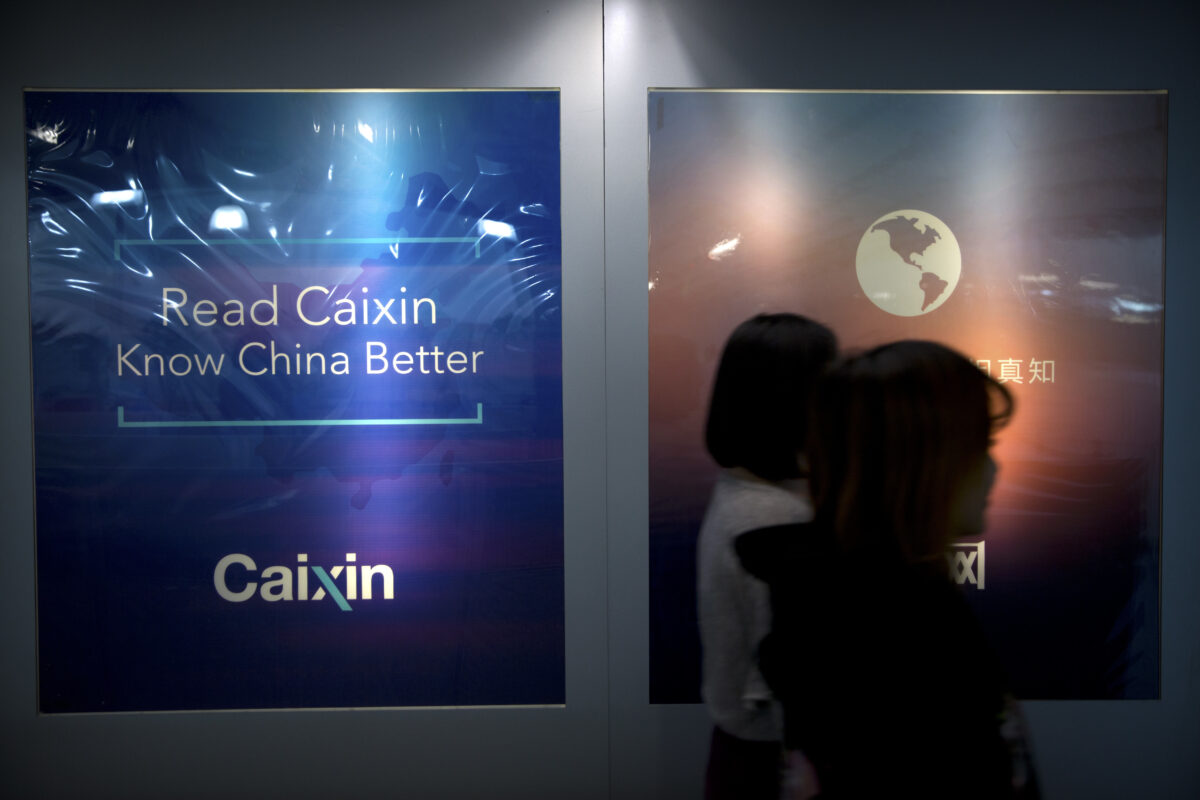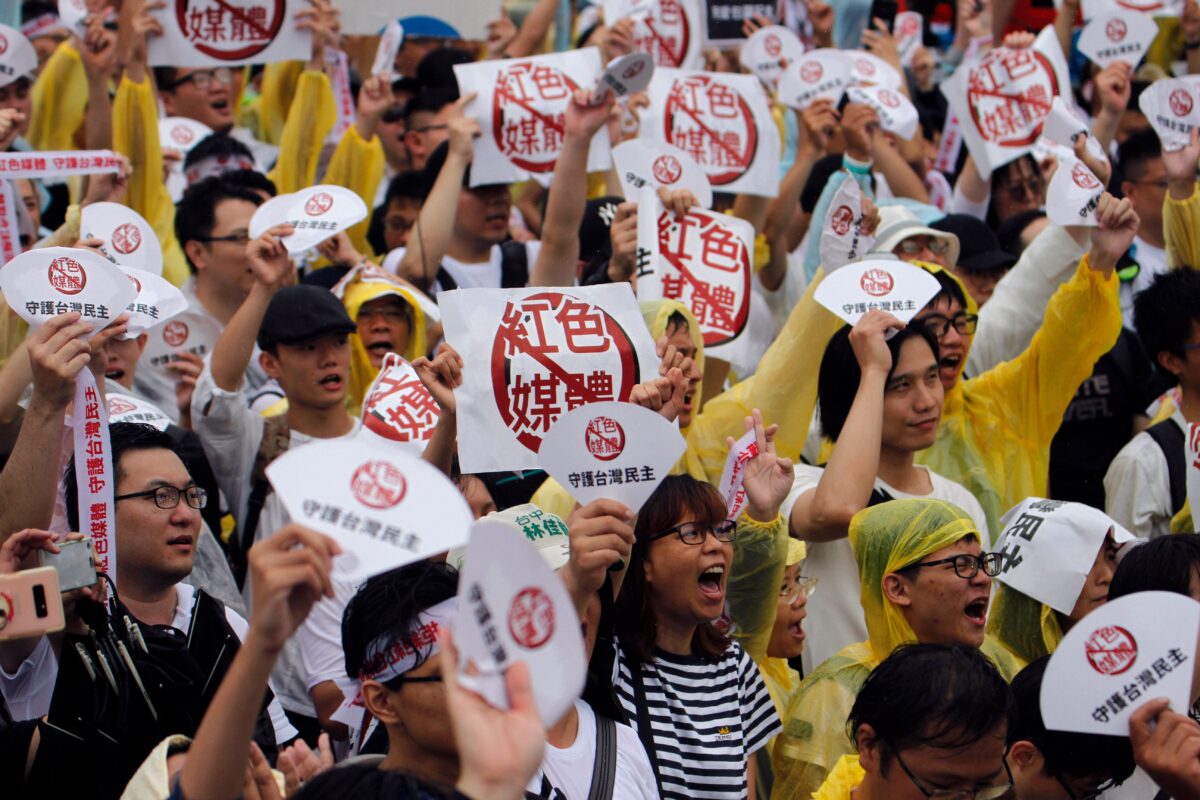A leading Chinese financial news outlet has fallen out of favor with Beijing, as China has banned its online content—well known for its investigative reporting—from any republishing.
The country’s top internet regulator unveiled an updated list on Oct. 20 of internet news providers whose content can be republished. The list, with over 1,300 news sites nationwide, is four times longer compared to the last version in 2016.
More social media accounts of the central government made their mark.
Outlets omitted from the so-called “whitelist” include one of the most liberal news sources Caixin Media—failed to meet requirements of news quality, said the Cyberspace Administration of China (CAC) in a notice.
The move comes in line with the ruling Communist Party’s tightening grip around the flow of information and high-profile private businesses.
Unlike China’s state-run media, Beijing-headquartered Caixin is not entirely government-owned but various parties have invested in it. The media group owns a think tank, a data company, investable indices, and research firms, running news sites and apps in both English and Chinese languages.
Being bolder than most peers, Caixin is known for independent investigative journalism, pushing limits imposed by policymakers.
In 2016, the company publicized the CAC’s deletion of its online article and called the Internet watchdog “a government censorship organ.” The then-deleted piece quoted comments breaching the absolute loyalty to the Party demanded by its leader Xi Jinping.
Over the years, Caixin has consistently reported on the failure of the ruling Party and politically sensitive topics, including pollution issues, public discontent, official corruption, also the death toll during the early stages of the COVID-19 outbreak in Wuhan city. In March 2020, the company investigated the number of boxed funeral urns delivered to a government-run funeral home, raising doubts of the much-lower official death toll.

Caixin didn’t respond to requests for comment from The Epoch Times.
The latest exclusion means Chinese readers can only access its news stories by visiting its website or app directly, instead of reading them on popular news aggregator websites.
China observers deemed it a further blow to the media freedom of the country.
China-based current affairs commentator Wu Te said the move would wipe out the revenue of the media company, which profits by subscriptions to its exclusive reports. “Once Caixin is ruled out as a news source … it simply cannot afford it,” he told The Epoch Times on Oct. 20.
Absolute Loyalty
The Chinese news landscape is tightly controlled by the Communist Party. State-run media that perform as front runners are told to pledge absolute loyalty to the regime.
Xi said in 2016 that “Party-owned media must hold the family name of the party,” claiming work of the party’s media must reflect the Party’s will.
Wu called the state-run media “propaganda tools that [regulators] must control.”
“The press is not a freestanding body of civil society,” he said.
Veteran Chinese media personality Huang Jinqiu said, “Strictly speaking, the so-called government-run media are not real media.”
“It will naturally lie for the party and deceive the people,” he said.

Earlier this month, China’s top planning body issued draft regulations, saying that private investments into newsgathering and distributing operations would be banned.
Chinese officials reviewed a list of Alibaba’s media assets and asked for a plan to cut down most of its media assets, The Wall Street Journal reported in March.
A month ago, the e-commerce giant sought to sell its entire stake in a television-based service provider following pressure from Beijing.
Meanwhile, the CAC said on Sept. 8 that it had shut down nearly 1,800 social media accounts of individuals for spreading negative financial news, labeled as “bad-mouthing” the country’s economy.
The Associated Press contributed to this report.
 RSS Feed
RSS Feed















 October 23rd, 2021
October 23rd, 2021  Awake Goy
Awake Goy 
 Posted in
Posted in  Tags:
Tags: 













